The Growing Influence of Halal Beauty Products in the Global Market
flareAI
In a bustling beauty aisle in Dubai, a shopper scans labels for a moisturizer that's not just organic but also Halal-certified, ensuring it aligns with her values. Across the globe in London, another customer, not Muslim but drawn to ethical products, picks up a Halal lip balm for its cruelty-free promise. This scene, once rare, is now a snapshot of a seismic shift in the beauty industry. Halal cosmetics, once a niche market, are projected to soar from USD 59.806 billion in 2025 to USD 85.582 billion by 2030, growing at a robust 7.43% CAGR. What's driving this surge? It's not just faith it's a global hunger for transparency, ethics, and sustainability.
Many women feel trapped by makeup that hides flaws but risks irritation and hidden toxins. This daily choice weighs heavily, dimming confidence over time. Liht Organics invites you to embrace beauty differently. With up to 90% USDA-certified organic ingredients, our vegan, cruelty-free products deliver vibrant color and gentle care, letting you glow with confidence, knowing your skin is nurtured, not compromised. Shop Now!
The Halal Beauty Boom
The rise of Halal beauty isn't just a trend; it's a movement reshaping how we think about cosmetics. Rooted in Islamic principles, Halal products are free from prohibited ingredients like alcohol or animal-derived substances not slaughtered according to religious guidelines. But their appeal stretches far beyond religious observance. Consumers worldwide, Muslim and non-Muslim alike, are drawn to the clarity of Halal certification: a guarantee of ethical sourcing and production. Add rising disposable incomes and a growing Islamic demographic over 1.9 billion people globally and you've got a market primed for explosive growth.
Brands like Liht Organics, a trailblazer in organic and cruelty-free beauty, are perfectly positioned to ride this wave. Their commitment to clean, sustainable ingredients dovetails with Halal standards, creating products that resonate with eco-conscious shoppers. It's no surprise that Halal beauty is gaining traction not just in Muslim-majority countries like Indonesia or Saudi Arabia but also in Western markets like the UK and the US, where ethical consumption is a growing priority.
A Perfect Match: Halal and Clean Beauty
Walk through any Sephora or Mecca, and you'll notice a quiet revolution. Halal-certified products, from serums to lipsticks, are sharing shelf space with clean beauty giants. The synergy is striking. Halal cosmetics often overlap with the clean beauty movement, emphasizing organic, non-toxic, and cruelty-free ingredients. This alignment isn't accidental. As climate change exacerbates skin concerns think dryness, pigmentation, or sensitivity consumers, especially younger ones with deeper pockets, are flocking to skincare that promises both health and ethics.
Take Inika Organic, an Australian brand that's made waves with its Halal-certified, vegan makeup line. Or Wardah, an Indonesian powerhouse that's captured hearts across Southeast Asia with affordable, Halal-compliant products. These brands aren't just selling cosmetics; they're selling trust. Their ingredient lists are transparent, their certifications rigorous. For a generation raised on social media exposés of greenwashing, that authenticity is gold.
Real-World Impact: From Niche to Mainstream
Halal beauty's rise isn't just numbers on a spreadsheet it's tangible. In Malaysia, Halal skincare brands dominate local markets, with consumers snapping up serums infused with natural ingredients like argan oil or aloe vera. In Europe, where the Muslim population is growing, supermarkets like Tesco now stock Halal-certified cosmetics alongside mainstream brands. Even non-Muslim consumers are jumping on board, drawn by the ethical halo effect. A London-based beauty blogger recently raved about a Halal mascara, not for its religious credentials but for its plant-based formula that didn't irritate her sensitive eyes.
Innovation is key here. Brands are rolling out Halal-compliant foundations, breathable nail polishes, and even haircare infused with botanical extracts. These products aren't just meeting religious standards they're pushing boundaries in a crowded market. Zawaj Beauty, for instance, has carved a niche with its Halal lipsticks, blending vibrant pigments with sustainable packaging. It's a reminder that Halal beauty isn't about limitation; it's about creativity.
Challenges on the Horizon
But the road to global dominance isn't smooth. Obtaining Halal certification is no small feat. The process involves rigorous audits, from sourcing ingredients to ensuring supply chains are free from cross-contamination with non-Halal substances. For smaller brands, these costs can be prohibitive. Then there's the issue of consumer awareness. In non-Muslim markets, some shoppers still view Halal products as exclusively religious, missing their broader ethical appeal. Misconceptions like these can slow adoption.
Supply chain hurdles add another layer of complexity. Sourcing Halal-compliant ingredients like gelatin alternatives or alcohol-free preservatives requires meticulous planning. One misstep, and a brand risks losing its certification, along with consumer trust. Yet these challenges are also opportunities. Brands that navigate them successfully stand out in a sea of competitors, earning loyalty from discerning customers.
Seizing the Opportunity
For organic beauty brands, the Halal market is a goldmine waiting to be tapped. With a projected market value of USD 85.582 billion by 2030, the potential is staggering. Southeast Asia, the Middle East, and North Africa are hotbeds of demand, but Western markets are catching up fast. Brands like Liht Organics can capitalize by aligning their cruelty-free ethos with Halal certification, appealing to a diverse consumer base that values both sustainability and authenticity.
Building trust is key. Muslim consumers, in particular, prioritize brands that respect their values, from ingredient transparency to ethical labor practices. But the benefits extend beyond faith-based markets. Halal certification signals quality and integrity, qualities that resonate with anyone fed up with opaque supply chains. Plus, the overlap with sustainability trends think eco-friendly packaging or biodegradable formulas gives brands a chance to double down on their green credentials.
A Memorable The Future of Beauty
The Halal beauty market isn't just growing it's redefining what beauty means. Industry analysts see no signs of slowing, with forecasts pointing to broader adoption and innovation. As one expert put it, “Halal cosmetics are no longer a niche; they're a global standard for ethical beauty.” For brands, the message is clear: embrace Halal certification, invest in transparency, and innovate relentlessly. Whether it's a moisturizer in Dubai or a lip balm in London, Halal beauty is proving that values-driven products can win hearts and wallets worldwide. The future of beauty isn't just clean or green; it's Halal, and it's here to stay.
Frequently Asked Questions
What is driving the growth of the halal beauty market globally?
The halal beauty market is experiencing explosive growth, projected to reach USD 85.582 billion by 2030 with a 7.43% CAGR. This surge is driven by rising disposable incomes, a growing global Muslim population of over 1.9 billion people, and increasing demand from non-Muslim consumers who are attracted to the ethical sourcing, transparency, and cruelty-free standards that halal certification guarantees. The alignment with clean beauty trends and sustainability values has made halal cosmetics appealing to conscious consumers worldwide.
Are halal beauty products only for Muslim consumers?
No, halal beauty products appeal to a diverse range of consumers beyond the Muslim community. Many non-Muslim shoppers choose halal cosmetics because they often overlap with clean beauty standards, featuring organic, non-toxic, and cruelty-free ingredients. The halal certification serves as a guarantee of ethical sourcing and production transparency, which resonates with anyone seeking sustainable and authentic beauty products. Markets like the UK and US are seeing growing adoption among consumers who prioritize ethical consumption.
What challenges do beauty brands face when entering the halal cosmetics market?
Beauty brands face several key challenges when pursuing halal certification, including rigorous audit processes that can be costly for smaller companies, ensuring supply chains are free from cross-contamination with non-halal substances, and sourcing compliant ingredients like alcohol-free preservatives and gelatin alternatives. Additionally, brands must overcome consumer awareness issues in non-Muslim markets where some shoppers still view halal products as exclusively religious, missing their broader ethical appeal. However, brands that successfully navigate these challenges often earn strong customer loyalty and stand out in competitive markets.
Disclaimer: The above helpful resources content contains personal opinions and experiences. The information provided is for general knowledge and does not constitute professional advice.
You may also be interested in: Makeup Tips – Liht Organics
Many women feel trapped by makeup that hides flaws but risks irritation and hidden toxins. This daily choice weighs heavily, dimming confidence over time. Liht Organics invites you to embrace beauty differently. With up to 90% USDA-certified organic ingredients, our vegan, cruelty-free products deliver vibrant color and gentle care, letting you glow with confidence, knowing your skin is nurtured, not compromised. Shop Now!
Powered by flareAI.co
Share
You May Also Like
-

Discovering Self-Love Through Clean Beauty: A Guide to Nurturing Your Inner and Outer Self
In the journey of self-love, every action, thought, and choice we make towards ourselves can be a powerful affirmatio...
-

The Science Behind Organic Makeup and Pregnancy: A Gentle Choice for Moms-to-Be
wp:paragraph Pregnancy is a wonderful and exciting journey that comes with added responsibilities of ensuring the ...
-
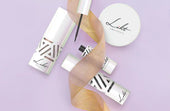
Liht Organics Black Friday: Enhance Your Beauty Routine with Vegan, Organic, and Natural Essentials!
As the holiday season approaches, there’s a sparkle in the air, and we at Liht Organics are thrilled to add a touch o...
-

Organic Makeup That Heals As It Conceals
Liht Organics Empowers Women With Only The Best For Their Beauty NeedsLiht Organics combines the best of both worlds:...
-
![[FEATURE] Liht Organics to debut at TFWA Asia Pacific show](//lihtorganics.com/cdn/shop/articles/1_1.png?v=1759328400&width=170)
[FEATURE] Liht Organics to debut at TFWA Asia Pacific show
‘Organic makeup that’s safe enough to eat’ — Liht Organics to debut at TFWA Asia Pacific show by Hannah Tan | 24 Apri...
-
![[FEATURE] The Singapore-based organic makeup brand is a first-time exhibitor at this year’s TFWA Asia Pacific Exhibition in Singapore in May 2025](//lihtorganics.com/cdn/shop/articles/2_1.png?v=1759328386&width=170)
[FEATURE] The Singapore-based organic makeup brand is a first-time exhibitor at this year’s TFWA Asia Pacific Exhibition in Singapore in May 2025
TFWA Asia Pacific preview: Liht Organics targets expansion in travel retail By DFNI Staff Writer The Singapore-bas...
-
![[FEATURE] Travel Retail Awards 2025 finalists - Best Make-up Product Color-Intense Liquid Lipstick – Liht Organics](//lihtorganics.com/cdn/shop/articles/4_e2f54f0f-fcd1-46e7-9990-fc9d29e35131.png?v=1759328382&width=170)
[FEATURE] Travel Retail Awards 2025 finalists - Best Make-up Product Color-Intense Liquid Lipstick – Liht Organics
Revealed: Travel Retail Awards 2025 finalists By Trbusiness Editor | Wednesday, 23 July 2025 15:21 TRBusiness is th...
-
![[FEATURE] Liht Organics targets expansion in travel retail](//lihtorganics.com/cdn/shop/articles/3_1.png?v=1759328346&width=170)
[FEATURE] Liht Organics targets expansion in travel retail
Organic makeup that’s safe enough to eat: Liht Organics targets expansion in travel retail By Laura Shirk Liht Organ...
-

[FEATURE] Gulf News: TikTok’s strawberry girl makeup trend: How to achieve that rosy glow inspired by Hailey Bieber
Berry, berry, strawberry, love strawberry, like BTS’s J-Hope, the band’s strawberry enthusiast once said. If only we ...
-

[FEATURE] Gulf Business Magazine : Liht-ing it up
Our founder, Nerissa Low was interviewed by Gulf Business, where she discussed her experience launching Liht, an orga...
-

[FEATURE] Daily Vanity: 11 local beauty brands owned by women – you’d be surprised how many of them started in their kitchens!
When we give a shout-out to homegrown beauty businesses, we aren’t just doing it for the sake of supporting local. Th...
-

[FEATURE] Entrepreneur ME : UAE-Based Liht Organics' Nerissa Low On Crafting An Organic Makeup Brand For The Skin-Conscious Consumer
As is the case with the origin stories of so many startups out there, Liht Organics came into being after its founder...
-
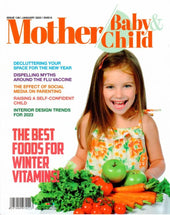
Mother, Baby & Child Editor’s Pick: Liht Organics Lights the Way
Excited to be the Mother, Baby & Child’s ‘Editors pick’ for their choice of Beauty brand.The article outlined the...
-
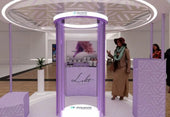
[FEATURE] EmiratesWoman - 8 Fabulous things to do in Dubai this weekend
by SARAH JOSEPHJANUARY 20, 2023Try the UAE’s first virtual reality makeup podium The popular VR-backed makeup exper...
-

Nerissa Low of Liht Organics On The Self-Care Routines & Practices Of Busy Entrepreneurs and Business Leaders
By Maria Angelova, CEO of Rebellious Intl.Date: 4 January, 2023Nerissa Low of Liht Organics On The Self-Care Routines...
-

Liht Organics: Meet the beauty brand that has caught the eye of the Royal Family of Bahrain
By Crystal Lee Digital Editor28 May 2021The world of clean beauty is, ironically, rather murky.That’s because the ter...
-

The latest luxury makeup and skincare drops, including serums, concealers, moisturisers and more
Allisa Noraini21 May, 2021It’s fine to splurge in the name of beauty. This new range of makeup and skincare drops are...
-

These SG Beauty Bosses Are Conquering The World Despite The Pandemic
First Singapore, then the US, China, Germany, Dubai, UK, South Korea, Malaysia, Hong Kong, Thailand, Australia… By...
-

Nerissa Low, Founder at Liht Organics
Written by Callum LaingPosted on December 26, 2020 10 min readNerissa Created Organic Makeup That Actually Improve...
-

Liht Organics – Makeup That Makes You
At Liht Organics, our mission is simple – to provide women (and men) with a safe experience when it comes to beauty s...
-

Why Should We Use Organic Makeup?
We cannot deny that cosmetics is one of our beauty essential item – it enhances our looks and conceals our flaws. Man...
-

Organic makeup and why your skin will love it: Liht Organics founder
By Jolene,July 27, 2020 |7 mins readOrganic make up in Singapore is a trend that is fast-catching on here as we becom...
-

[FEATURE] DC EDIT – Makeup & Confidence: Talking Self-love With Liht Organics’ Founder Nerissa Low
Makeup and confidence — the long, drawn-out fight that many of us have grappled with personally. I’m sure I’m not the...
-

[FEATURE] THE FEMALE CULTURE – I TRIED LIHT ORGANICS AND THIS IS HOW IT WENT
I’m a huge fan of makeup and I love testing out new products so I was pretty excited to get my hands on Liht Organics...
-

[FEATURE] SINGAPORE MOTHERHOOD – The Best Organic and Natural Skincare and Makeup for Pregnant and Breastfeeding Mums in Singapore
Pregnancy is a hormone-volatile period for women. One place where this makes itself seen and felt is on the skin. Som...
-

[FEATURE] AFTER CLINIC HOURS – 21 Back to Beauty Deals in Singapore (2020)
With spas and salons shuttered island wide for two months, I never thought I’d be this desperate for a good old’ Swed...
-

[FEATURE] KUL AL USRA MAGAZINE JUNE 2020
Choosing Pinks & Oranges this summer!Featured: Moisture Burst Lip Glaze in Pink Cupcake.
-
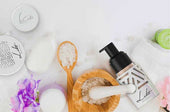
[FEATURE] Award-winning Organic Makeup Brand Liht Organics Gives Back to the Community & Environment During COVID-19
Singapore’s First Organic Makeup Brand with 100% Natural Makeup That Is Safe Enough to Eat Liht Organics promises org...
-

[FEATURE] COSMETICS DESIGN ASIA – COVID-19 ‘WAKE-UP CALL’: SINGAPORE’S LIHT ORGANICS SEES GLOBAL POTENTIAL AMID CLEAN BEAUTY CLAMOUR
Original article at: https://www.cosmeticsdesign-asia.com/Article/2020/06/26/Singapore-s-Liht-Organics-sees-globa...
-

[FEATURE] THE LIFESTYLE COLLECTIVE – BEAUTY SHOULD NEVER BE CRUEL
Date: June 24, 2020Author: Kristen Chen Liht (pronounced as light) Organics is a Singaporean organic makeup brand t...
-

[FEATURE] NÜYOU – 7 ONLINE PLATFORMS TO SHOP FOR CLEAN BEAUTY PRODUCTS
纯净美容(Clean Beauty)的美肤概念,再近几年来越来越受欢迎。随着消费者“爱自己”的美容意识逐步提升,对于用在脸上的所有物品、成分更为关注和讲究。以广义来讲,纯净美容主张使用“干净”成分和无毒配方,让肌肤的可能性损伤减到最小...
-

[FEATURE] COSMOPOLITAN MIDDLE EAST – 3 BENEFITS OF SWITCHING TO ORGANIC BEAUTY PRODUCTS THIS RAMADAN
By Cosmo – May 08, 2020Nerissa Low, founder of Liht Organics, shares the ultimate benefits of going organic this mont...
-

Nerissa Low of Liht Organics: “Seeing Light at the End of the Tunnel; 5 Reasons To Be Hopeful During this Corona Crisis”
Ely Weinschneider, Psy.D.May 8 · 9 min read …It shows us that everyone- whether we are rich or poor, regardless...
-

[FEATURE] AL MARA MAGAZINE APRIL 2020
-

[FEATURE] RetailME April 2020 – Liht Organics Stays Firm On Strengthening GCC Presence
-

[FEATURE] EMARAT AL YOUM NEWSPAPER – 27 MARCH 2020
English Translation:In spring and summer days, women love to have very light makeup in terms of color and texture, ...
-

[ARTICLE] WKND Magazine March 2020 – Know Your Organic Makeup
-

[FEATURE] AVIAMOST DUBAI – March/April 2020
English Translation:Lipstick with organic flowers. Thanks to the rich complex of natural ingredients, the lipstick...
-

[FEATURE] RUSSIAN EMIRATES (MAR/APR ISSUE)
Russian Emirates is a luxury lifestyle and fashion magazine covering information about the UAE, fashion, beauty, j...
-

[FEATURE] – KUL AL USRA MAGAZINE MARCH 2020
GET THE LOOK!
-

[FEATURE] IMAGES Retail ME – Liht Organics Announces GCC-Wide Expansion
Rupkatha Bhowmick Mar 10, 2020 The plan is to reach 75 Liht Organics retail touchpoints by June-July 2020 and touch...
-

[FEATURE] BABY & CHILD SPRING 2020 – NATURAL BEAUTIES
-

[FEATURE] AWQAT DUBAI – Liht Organics: The First Premium Organic Makeup Brand
ENGLISH TRANSLATION:Liht Organics – The First Premium Organic Makeup Brand Liht Organics, a premium organic beauty ...
-

[FEATURE] FRIDAY MAGAZINE – THE RETRO EYELINER LOOK
-

[FEATURE] MOTHER BABY & CHILD – VANITY ESSENTIALS – THE BEAUTY EDIT
-

[FEATURE] Masala! Magazine February/March 2020 Issue – Beauty Debut: Liht Organics
-

[Feature] – TimeOut Singapore – The Best Local Beauty and Skincare Brands In Singapore
For full article, click here.
-

[FEATURE] KUL AL USRA MAGAZINE – LIHT UP YOUR WORLD WITH LIHT ORGANICS
[ENGLISH TRANSLATION]Liht Up Your World With Liht OrganicsThe First Premium Organic Makeup Brand To Debut In The Mi...
-

[FEATURE] SINGAPORE TATLER – 9 Local Beauty Brands You Should Know Of
-

[FEATURE] nüyou August 2019 Issue – 15 Faces To Watch
-

[FEATURE] HONEYCOMBERS – Local Beauty Gurus: Singapore Beauty Brands You Need To Know About
-

[FEATURE] The Wellness Insider – Seeing The Liht With Founder Nerissa Low
-

[FEATURE] 联合早报 (LianHeZaoBao) – Women Entrepreneur Awards 2019 Coverage
-

[FEATURE] THE STRAITS TIMES Life – Clean beauty with a Singapore heart
-

Romantic Organic Makeup Looks for Valentine's Day: Tips, Tricks, and Product Picks
Valentine's Day is the perfect occasion to embrace the beauty of organic makeup. At Liht Organics, we believe in the ...
-
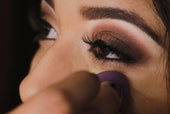
Enhance Your Eyes: A Guide to Eyeliner for Every Eye Shape with Liht Organics
Welcome to the Liht Organics blog, where we believe in celebrating the natural beauty of every eye shape. Today, we'r...
-
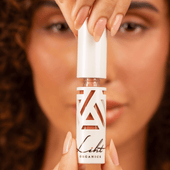
How to do makeup with only lipstick?
At Liht Organics, we believe in the power of clean beauty and the artistry of makeup. Makeup is more than just enhanc...
-

How to Clean Your Makeup Brushes in 6 Simple Steps
Cleaning your makeup brushes may seem like a tedious task, but it's an essential part of your beauty routine. Not onl...
-

Makeup Tips to Help You Look Your Most Flattering on Virtual Meetings!
After more than 2 years of work-from-home arrangement, and possibly hundreds of zoom calls and Google meet virtual me...
-
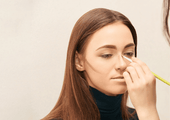
Learn How to Contour with This Simple Guide for Beginners
Want to take your makeup to the next level? Try contouring to achieve a more defined or sculpted look à la the Kardas...
-
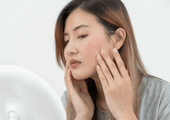
Essential and Easy Makeup Tips for Sensitive Skin
Living with sensitive skin conditions like eczema, psoriasis, and more is already not an easy feat. Throw in makeup t...
-
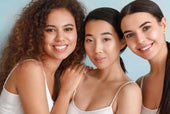
Raising Your Vibration: A Liht Organics Guide for Empowerment This International Women's Day
wp:paragraph As International Women's Day (IWD) approaches, it serves as a powerful reminder of the journey towards s...
-

The Beauty of Going Bare: Why Sleeping with Makeup is a No-No
Have you ever had one of those nights where you're too tired to clean off your makeup? You might believe, "Skipping...
-

Breast Cancer Awareness: Empower Your Beauty with Liht Organics Makeup
During October, we observe Breast Cancer Awareness Month as a way to unite and bring attention to breast cancer whil...
-

The Hidden Dangers of Carmine in Makeup Colorants: Embracing Healthier and Vegan Options
Makeup has become an integral part of our daily routines, allowing us to express our unique beauty. However, as we pr...
-

How can I ensure that my makeup products are organic and won't harm my skin?
When it comes to makeup, it’s important to be mindful of what you’re putting on your skin. With so many products on t...
-
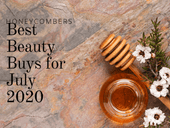
[FEATURE] HONEYCOMBERS – BEST BEAUTY BUYS IN JULY
by Nicole NithiyahWhat’s hot in our beauty hit list: Honest thoughts and top beauty stories we’re swooning over. As w...
-

Liht Organics Introduces Exclusive Gift Sets: Enhance Your Beauty This Festive Season!
As the holiday season approaches and the year draws to a close, Liht Organics is thrilled to present two enchanting g...
-

Get Spooktacular with the Best Halloween Makeup Ideas using Liht Organics' All-Natural, Vegan, and Cruelty-Free Cosmetics!
With Halloween just around the corner, it’s time to let your creativity shine and transform yourself into a spooky,...
-

Celebrating World Animal Day with Liht Organics: Embracing Natural Cruelty-Free Makeup
wp:paragraph As we observe World Animal Day, the team at Liht Organics takes great pride in honoring our pledge to...
-

Reasons Why You Should Choose Cruelty-Free Cosmetics Instead!
With increasing exposés unveiling the ugly truth behind animal testing that goes on in the beauty industry, it is lit...
-
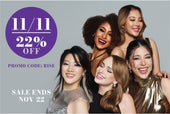
Celebrate Singles Day with Makeup That Empowers – 22% Off at LIHT Organics!
This Singles Day, treat yourself to beauty that goes beyond skin-deep. At LIHT Organics, we believe makeup is about s...
-

Preparing for the Cozy Beauty of Autumn: A Preview of Your Fall Look
As we bid farewell to the warm, sun-kissed days of summer, it’s never too early to start dreaming about the enchantin...
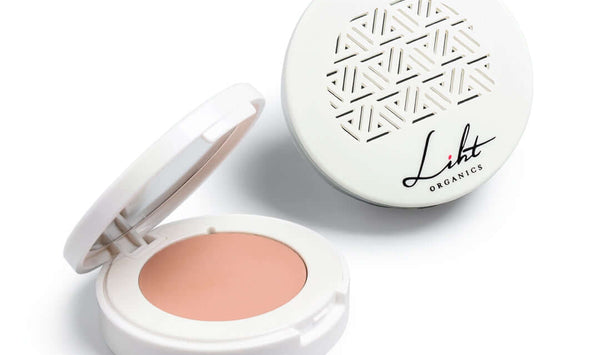
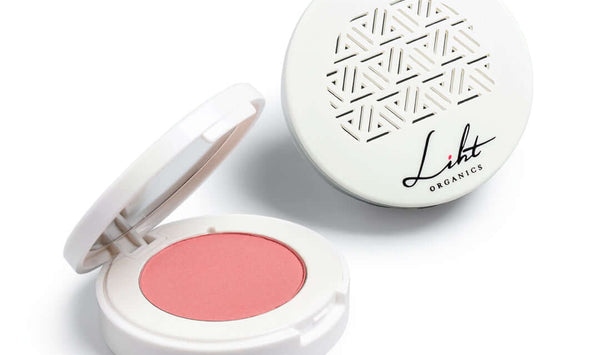
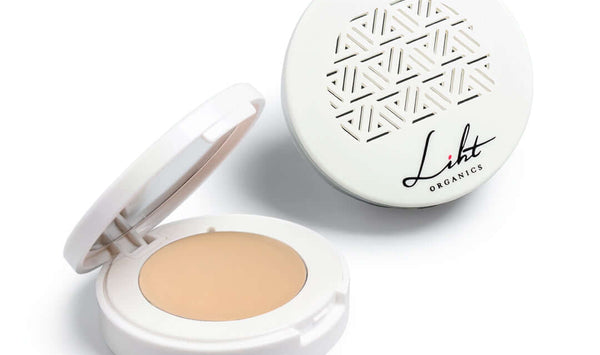
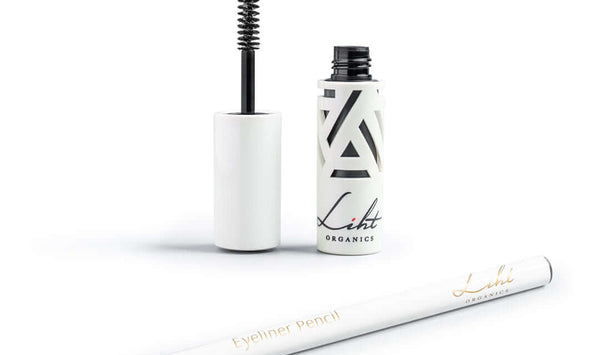
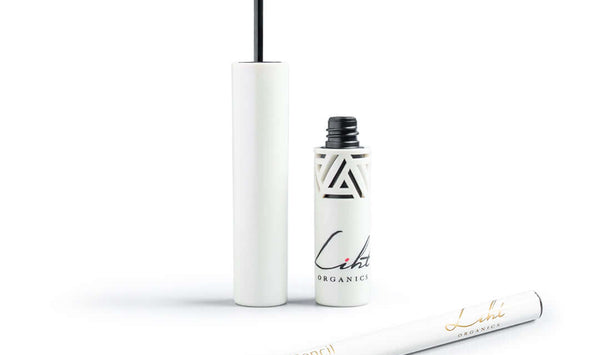
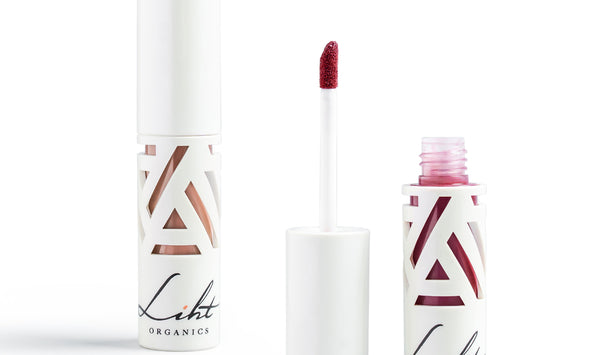
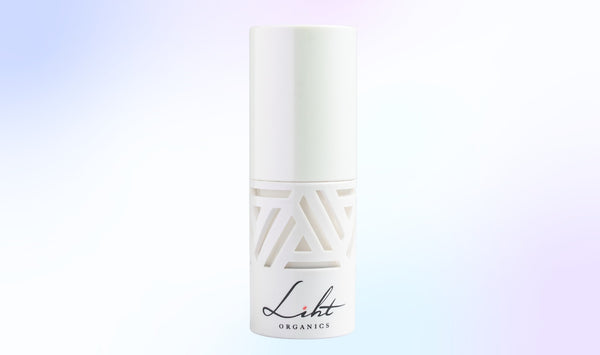
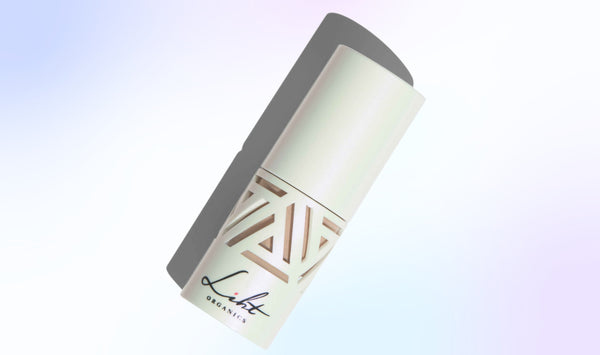
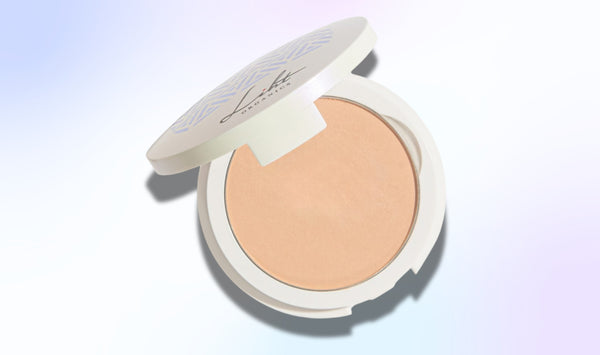
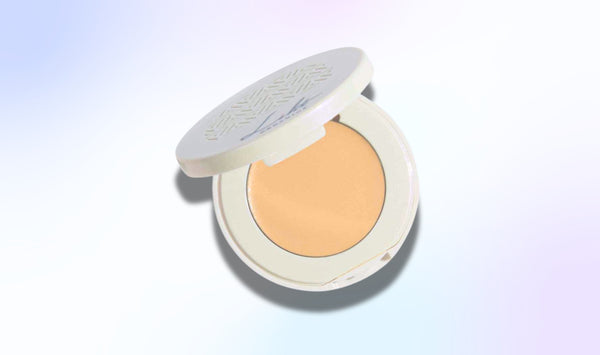
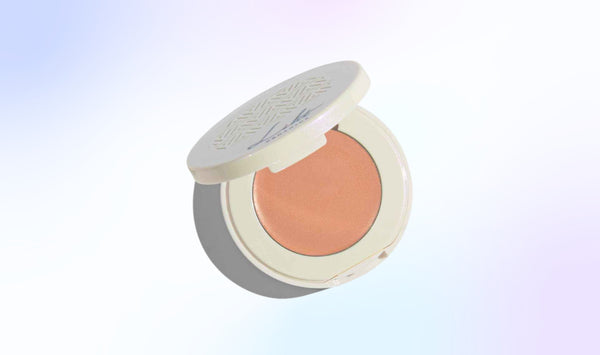
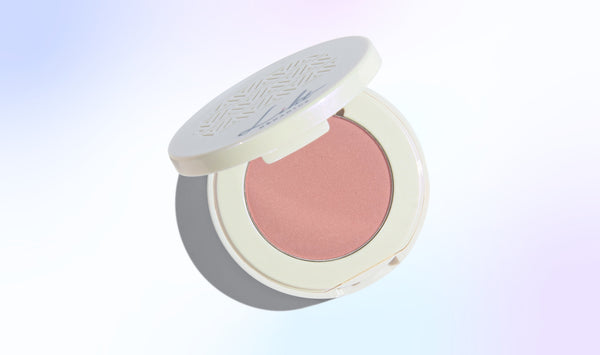
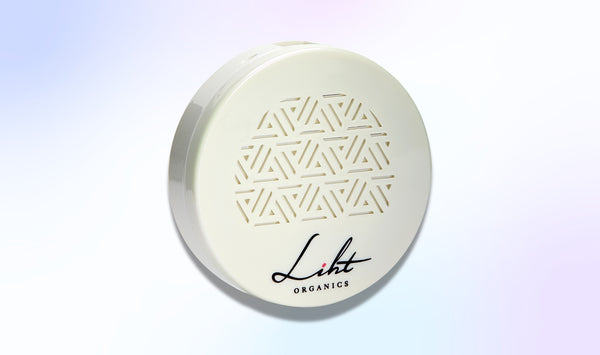
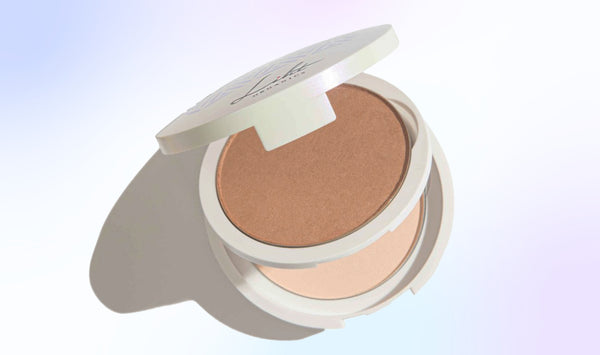
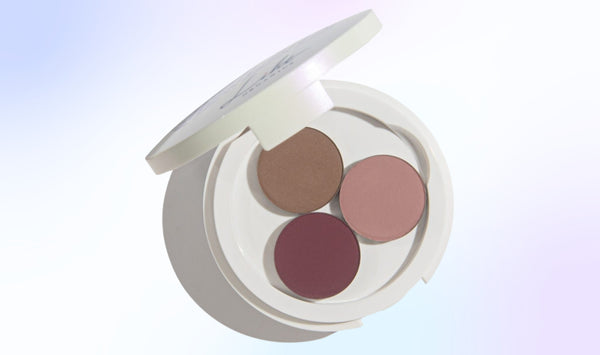
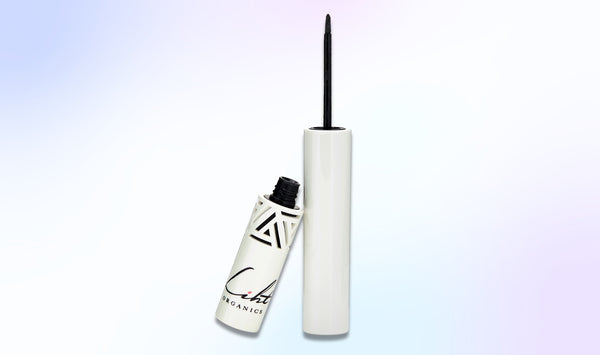
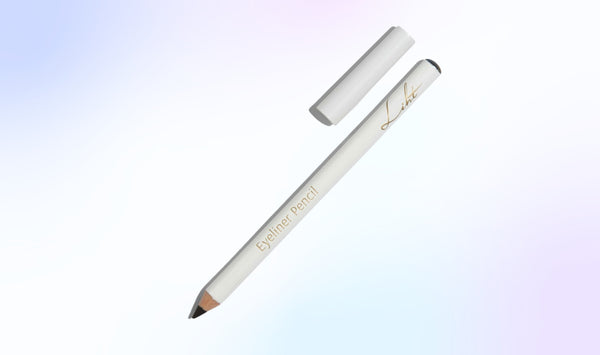
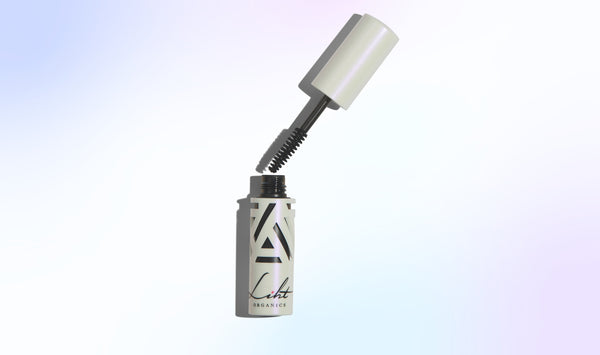
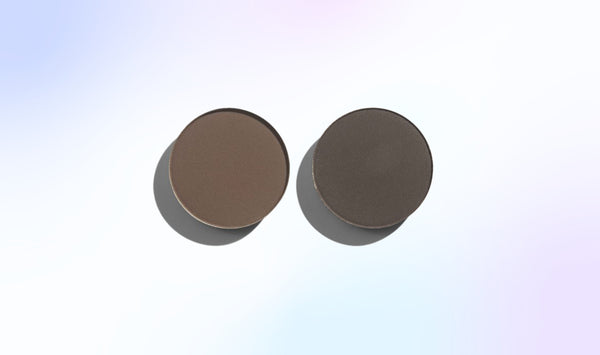
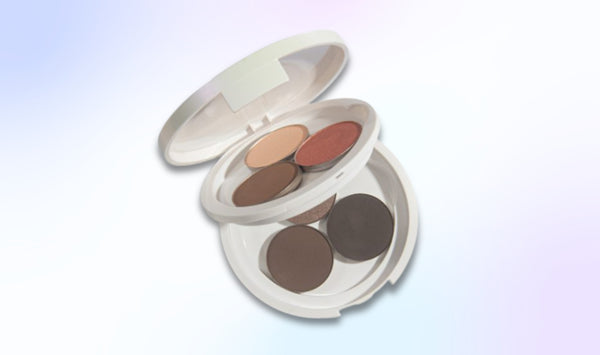
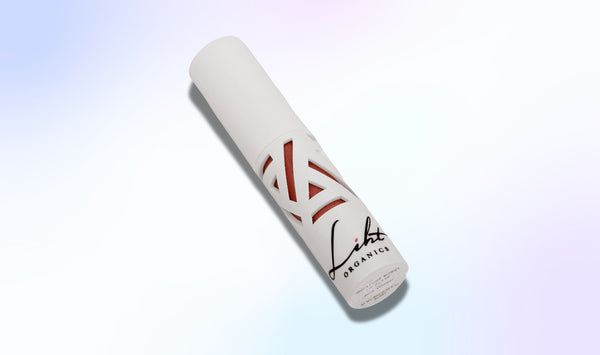
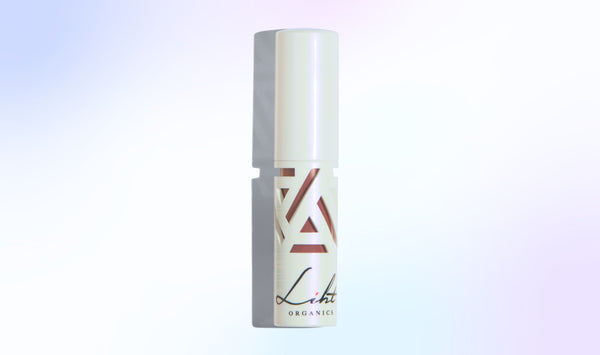
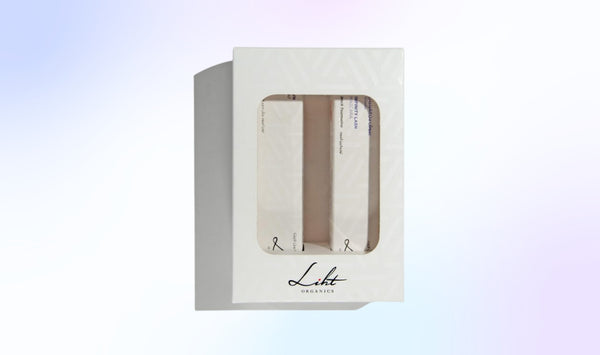
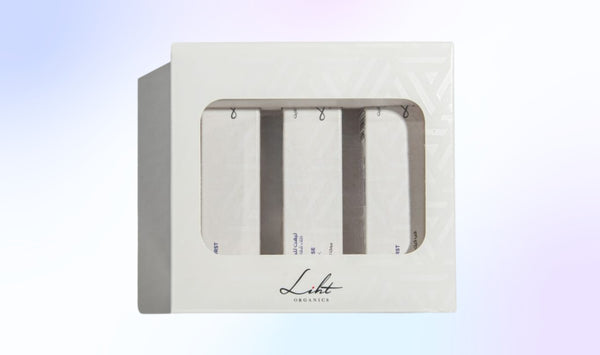
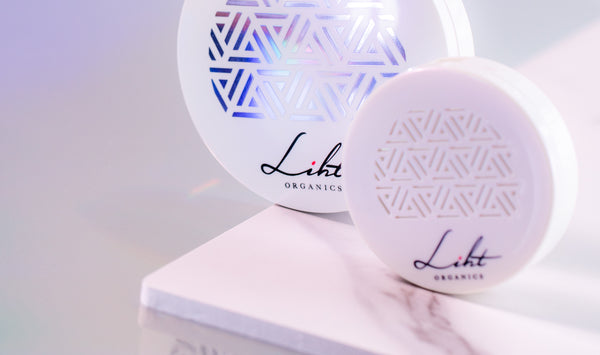
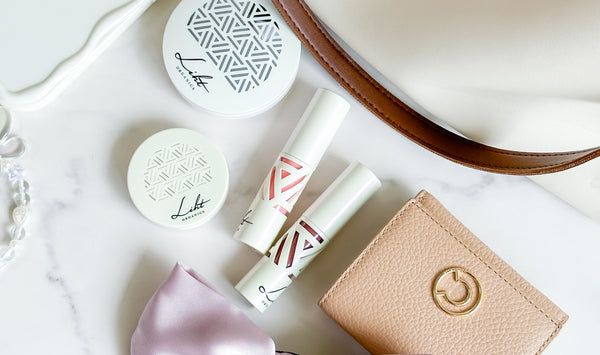
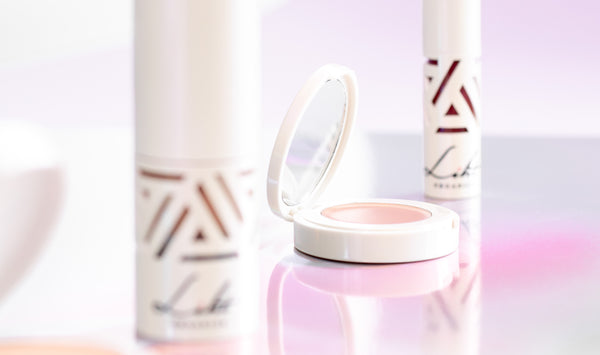




![[FEATURE] Liht Organics to debut at TFWA Asia Pacific show](http://lihtorganics.com/cdn/shop/articles/1_1.png?v=1759328400&width=170)
![[FEATURE] The Singapore-based organic makeup brand is a first-time exhibitor at this year’s TFWA Asia Pacific Exhibition in Singapore in May 2025](http://lihtorganics.com/cdn/shop/articles/2_1.png?v=1759328386&width=170)
![[FEATURE] Travel Retail Awards 2025 finalists - Best Make-up Product Color-Intense Liquid Lipstick – Liht Organics](http://lihtorganics.com/cdn/shop/articles/4_e2f54f0f-fcd1-46e7-9990-fc9d29e35131.png?v=1759328382&width=170)
![[FEATURE] Liht Organics targets expansion in travel retail](http://lihtorganics.com/cdn/shop/articles/3_1.png?v=1759328346&width=170)
































































